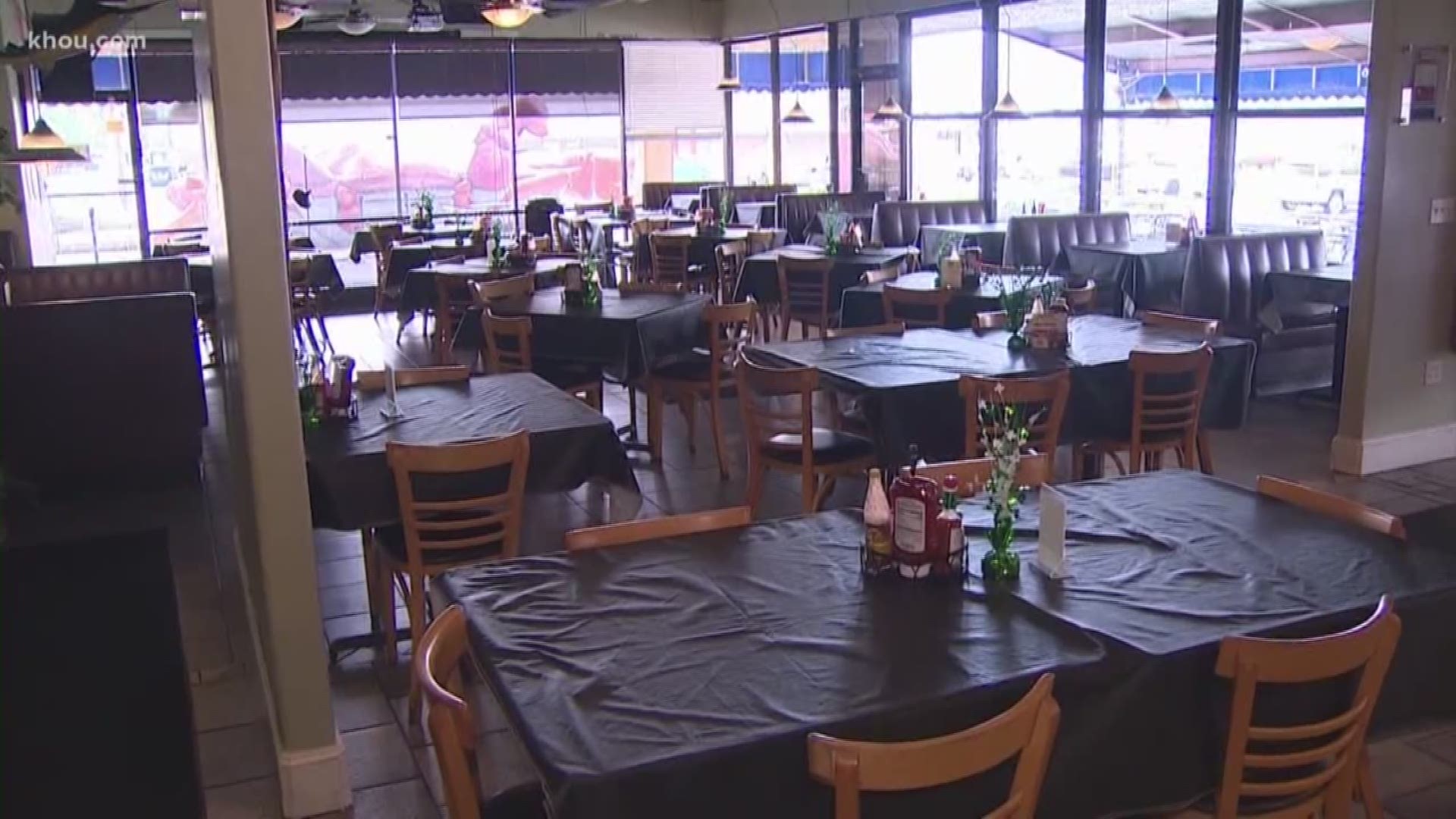HOUSTON — Houston City Council is extending the city’s emergency health declaration related to COVID-19.
They voted this morning during an emergency meeting.
All city-sponsored, promoted and permitted events scheduled through the end of April will be postponed or cancelled.
The declaration also lets the city get federal help and gives them more flexibility to manage resources.
“I firmly believe that what we have done already has helped to save lives already,” said Mayor Turner. “If we were not to act then we are jeopardizing the lives of everybody within our city and within our region.”
The extension lasts indefinitely, which some council members said is good given the unpredictable nature of this virus.
“We could all get sick," District A Councilwoman Amy Peck said. "I mean, we all talk to so many people, we’re at so many meetings. We have to have that possibility that we might not be able to come back to extend this declaration, and then what happens at that point?”
District G Council Member Greg Travis cast the only vote against the extension, however. He wanted the council to decide each week whether an extension was needed.
“This is too important of a topic economically and health-wise not to have council involved to such an extent,” Travis said.
District C Councilwoman Abbie Kamin is currently self-quarantining. She tweeted she was recently in contact with a family member who may have been exposed to COVID-19 but isn’t able to be tested. Kamin added that she feels great and is doing this out of an abundance of caution.
Kamin followed Tuesday’s meeting from home.
“Luckily my family member was able to get tested this morning, but we all decided out of an abundance of caution to self-quarantine until those results come in,” Kamin told KHOU Tuesday afternoon through a FaceTime interview.
Council Member Kamin said she’s able to work remotely downstairs while her husband works upstairs.
“My husband and I feel great,” said she said. “Nobody should be worried. Nobody should be concerned.”
The District C office remains open.
Other changes
Another change at City Hall: Starting next Tuesday, there will be no proclamation presentations during the city council public sessions. They’ll also limit the number of people in the chamber.
Harris County extension
Harris County was also placed under a public health disaster declaration, activating the county's emergency management plan.
On Tuesday, Harris County Judge Lina Hidalgo said she wanted to approve an extension of the disaster declaration until April 29, but commissioners decided to approve it until March 25.
The court will re-convene on March 24 and will re-assess, possibly extending their declaration.
What's the difference between an emergency health declaration and disaster declaration?
An emergency health declaration is issued when a disease or disorder presents a public health emergency or that a public health emergency, including significant outbreaks of infectious disease or bioterrorist attacks, otherwise exists, according to the Department of Health and Human Services (HHS).
Turner said an emergency health declaration gives him and his staff flexibility in acquiring goods or services needed to combat the coronavirus, managing resources and getting federal help.
The Harris County Judge's Office says a disaster declaration allows the County to make emergency-related expenditures without having to wait and seek approval from Commissioner's Court.
Coronavirus symptoms
The symptoms of coronavirus can be similar to the flu or a bad cold. Symptoms include a fever, cough and shortness of breath, according to the Centers for Disease Control.
Most healthy people will have mild symptoms. A study of more than 72,000 patients by the Centers for Disease Control in China showed 80 percent of the cases there were mild.
But infections can cause pneumonia, severe acute respiratory syndrome, kidney failure and even death, according to the World Health Organization. Older people with underlying health conditions are most at risk.
The CDC believes symptoms may appear anywhere from two to 14 days after being exposed.
Human coronaviruses are usually spread through...
- The air by coughing or sneezing
- Close personal contact, such as touching or shaking hands
- Touching an object or surface with the virus on it, then touching your mouth, nose or eyes before washing your hands.
Help stop the spread of coronavirus
- Stay home when you are sick.
- Eat and sleep separately from your family members
- Use different utensils and dishes
- Cover your cough or sneeze with your arm, not your hand.
- If you use a tissue, throw it in the trash.
Lower your risk
- Wash your hands often with soap and water for at least 20 seconds. If soap and water are not available, use an alcohol-based hand sanitizer.
- Avoid touching your eyes, nose, and mouth with unwashed hands.
- Avoid close contact with people who are sick.
- Clean and disinfect frequently touched objects and surfaces.
- If you are 60 or over and have an underlying health condition such as cardiovascular disease, diabetes or respiratory illnesses like asthma or COPD, the World Health Organization advises you to try to avoid crowds or places where you might interact with people who are sick.
Get complete coverage of the coronavirus by texting 'FACTS' to 713-526-1111.

